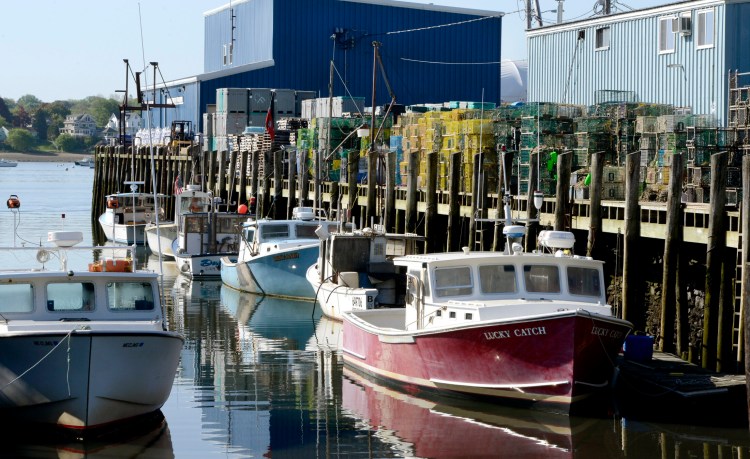Portland’s City Council voted unanimously Monday night to support waterfront zoning changes that were recommended by the City’s Waterfront Working Group, and not a weakened version that had been recommended by the Planning Board.
The Working Waterfront Group was created in January to address the development pressure on the waterfront’s signature industry – commercial fishing.
City Councilor Belinda Ray proposed an amendment to the zoning ordinance that she said restores the non-marine use overlay zone on Commercial Street from 150 to 125 feet. Ray said the only exception would be Long Wharf, which will go from 500 to 300 feet. Ray’s amendment passed 9-0.
Ray’s amendment says that the Waterfront Central Zone was created to protect and nurture water-dependent and marine-related uses.
Fishermen supported the proposal to reduce the non-marine use overlay zone on Commercial Street from 150 to 125 feet, saying that without it they would be forced off Portland’s waterfront.
Ray told her follow councilors that fishermen had considered filing a petition that would have led to a waterfront referendum aimed at blocking non-marine development on the waterfront, but decided to wait and let the council process take its course.
Earlier this year, the Portland Planning Board said it supported working waterfront protections, but would not support a reduced overlay or redevelopment zone. Planning Board members recommended prohibitions on new restaurants and stores from opening up on the outer ends of the piers, but declined shrinking the so-called non-marine use overlay zone.
Pier owners opposed shrinking the overlay zone saying it would cripple their ability to generate revenue needed to maintain aging piers.
Councilors expressed support for Ray’s amendment.
“I think this is a reasonable way to go,” Justin Costa said.
Councilor Jill Duson said, “It’s a balancing act when you have two interests competing for a limited resource. I think this is the right balance.”
Mayor Ethan Strimling thanked the fishermen for raising the issue of protecting the working waterfront from development.
“They brought this into our consciousness and forced us to act,” he said.
Send questions/comments to the editors.



